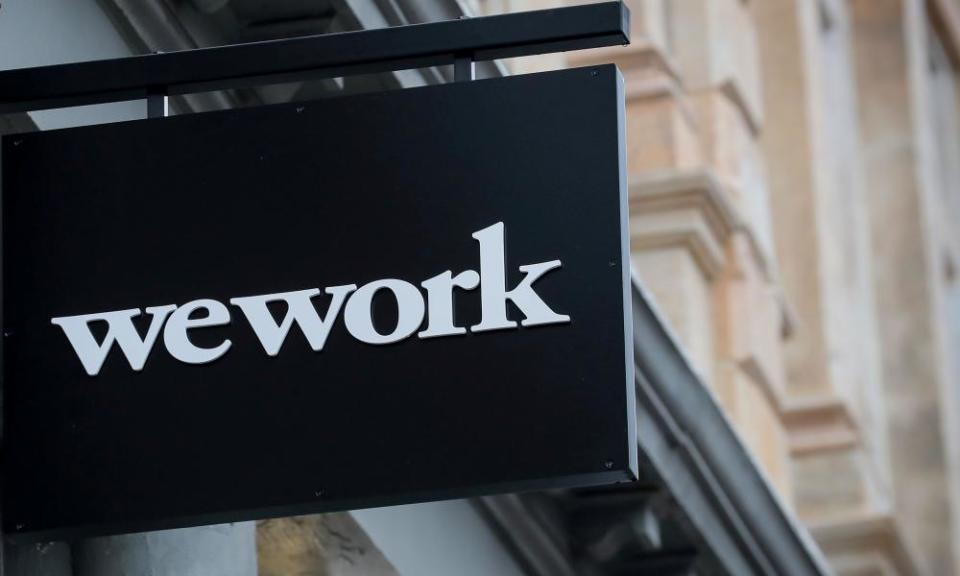'End of irrational exuberance': WeWork considers slashing valuation in half

WeWork, the fast-growing office rental company, is considering cutting the value of its upcoming share offering in half as it faces growing skepticism over its business model and corporate governance.
The nine-year-old company has shaken up the office market by retooling office rentals by adding beer taps, more potted plants and foosball tables to buildings it now runs in 111 cities around the world.
We Co, WeWork’s parent company, had been expected to go for an initial public offering (IPO) that valued the business at $47bn but according to multiple reports it is now considering a price tag of $20bn.
We Co is the latest in a series of high profile and heavily loss-making companies to go public. Others, including Uber and Lyft, have failed to shine as public companies. If the cut in valuation is true, Charles Elson, director of the John Weinberg Center for Corporate Governance at the University of Delaware, said it may show “irrational exuberance has left the market”.
We Co filed its IPO application last month and the filing worried some investors. While its revenues are soaring, so are its losses. We Co more than quadrupled revenues in 2018, reaching $1.82bn, more than four times larger than they were in 2016. At the same time the company lost $2.9bn in the last three years.
Related: WeWork files for IPO amid investor skepticism over deep losses
The prospectus also warned: “We have a history of losses and, especially if we continue to grow at an accelerated rate, we may be unable to achieve profitability at a company level … for the foreseeable future.”
The prospectus also revealed corporate governance issues that raised some red flags. Co-founder Adam Neumann owns several of the properties that WeWork leases and has borrowed money from the company at generous interest rates. One $7m loan granted in 2016 came with a rate of just 0.64%.
According to the Wall Street Journal, Neumann has cashed out more than $700m in shares and debt from the company, an unusual move for a founder ahead of a share sale.
The IPO prospectus also revealed that Neumann was paid $5.9m for the use of the word we. Ahead of the IPO, WeWork rebranded itself as We Co, a move that led the company to pay the cash to We Holdings, a company controlled by the co-founder as “fair market value” for the trademark.
This week the company disclosed Neumann had paid the company back, “at Adam’s direction”.
“Adam also owned the rights to the ‘We’ trademark, which the firm decided they must own and paid the founder/CEO $5.9 million for the rights. The rights to a name nearly identical to the name of the firm where he’s the founder/CEO and largest shareholder. YOU. CAN’T. MAKE. THIS. S---. UP,” wrote Scott Galloway, a New York University marketing professor.
Elson said there were a number of worrying factors in We Co’s IPO prospectus, not least its dual class share structure, which would allow the company’s founders to retain control despite having sold the majority of shares to investors. Such structures are common in tech IPOs.
“These structures mean shareholders are powerless to deal with any kind of mismanagement,” said Elson. “At some point the market has to say enough.”
We Co had been planning too debut in September and its shareholder roadshow could start as early as next week. It is unclear whether the company will push ahead with the IPO this month or decide to delay.
We Co declined to comment.
The property firm is the latest in a new generation of tech companies to run into problems as they seek to go public. Uber and Lyft also attracted sky-high valuations ahead of their IPOs only to see their share prices collapse as investors questioned their ability to overcome their huge losses.
Uber’s share price hit an all-time low of $30.70 a share this week and its market value has fallen from $82bn to $55bn since its IPO in May.
